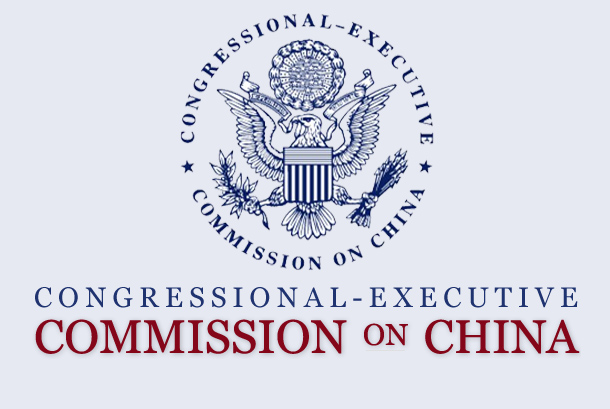 Washington, D.C. -- The United States' Congressional-Executive Commission on China released its 15th annual report on October 6th. As part of the Commission's report, a portion focuses specifically on Tibet, monitoring human rights and other issues.
Washington, D.C. -- The United States' Congressional-Executive Commission on China released its 15th annual report on October 6th. As part of the Commission's report, a portion focuses specifically on Tibet, monitoring human rights and other issues.
Beginning with His Holiness the Dalai Lama, the Commission notes that dialogue between His Holiness and the Chinese Communist Party has ceased to continue since 2010.
"The Party and government continued this past year to attempt to remove the Dalai Lama from Tibetans' lives by means including denying his status as a religious leader, cracking down on Party members, preventing or punishing display of his image, and hindering Tibetan travel to India."
"Additional reports this past year demonstrated Party and government disregard of Tibetans' right to religious freedom..." the report continued with examples such as, "County People's Government, in Naqu (Nagchu) prefecture, TAR, issued a ''notice'' directing ''purge and reform''of monastic leadership and religious and financial affairs, and specifying punishment for non-compliance. Days later, authorities expelled at least 100 nuns and demolished residences at a local nunnery.
In July 2016, demolition commenced at the renowned Larung Gar Buddhist Institute, in Seda (Serthar) county, Ganzi TAP, Sichuan province, to reduce Tibetan Buddhist lay and monastic practitioners living there from ''more than 20,000'' to 5,000 by September 2017."
Regarding cultural and personal freedoms, the Commission noted a particular effort cracking down on Tibetan language. "Reports emerged showing that officials at times treated Tibetan efforts to sustain their culture and language as illegal or as a threat to social stability, leaving Tibetans with uncertain recourse. In a Foreign Policy article, a Columbia University professor observed: 'Although China's constitution and ethnic autonomy laws create the appearance of progress, there are no mechanisms for enforcing the vision of equality put forward by those texts. Put simply, there is no Chinese Department of Justice or Chinese Supreme Court to which Tibetans can appeal to fight discriminatory practices.'"
"Officials deny Tibetans adequate rights to protect their culture, language, religion, and environment, and prosecute as criminals Tibetans who question or protest against official policies."
The Commission observed that there was no evidence during its 2002 to 2016 period of reporting that the government solicited any representation of input from the Tibetan population on the economic development in the Tibetan autonomous areas of China.
Recent developments have included the building of railways, rapid urbanization and a shift in population, all of which affect Tibetans intimately, and yet had no input in.
Specifically regarding population shift, "Commission access this past year to Chinese 2010 ethnic census data showed a 50-percent increase in the Han population of Lhasa municipality from 2000 to 2010." Such a drastic increase has made Tibetans a minority in their own home and has created issues with housing and government land seizing.
Another issue includes mining, an effort that has polluted and destroyed regions of traditionally Tibetan pastoral land, despite protest from locals. Citing specific examples, "Security officials beat Tibetans in Amuqu (Amchog) township, Xiahe (Sangchu) county, Gannan (Kanlho) TAP, Gansu province, who protested against open-pit mining near another sacred mountain. The township government issued a document linking protesters to ''anti-China forces'' and warned of 'severe consequences.'"
Finally, regarding political prisoners and the imprisonment of Tibetans, the Commission noted that, "As of August 1, 2016, the Commission's Political Prisoner Database (PPD) contained 1,894 records—a figure certain to be far from complete—of Tibetan political prisoners detained on or after March 10, 2008."
Citing the UN Committee Against torture in its 2016 Periodic Report on China, "The Committee has received numerous reports from credible sources that document in detail cases of torture, deaths in custody, arbitrary detention and disappearances of Tibetans. . . . In view of this information, the Committee remains seriously concerned at the State party's failure to provide information on 24 out of the 26 Tibetan cases mentioned in the list of issues."
The Commission was formed 15 years ago as China joined the World Trade Organization (WTO), thus agreeing to certain international principles, as a way to monitor reform and development of the People's Republic of China.
However, according to the report, "China has largely failed to implement the substantive legal reforms anticipated 15 years ago and has persisted in violating international human rights standards and its own domestic laws with lasting harm to both U.S. interests and the Chinese people."


![Tibet has a rich history as a sovereign nation until the 1950s when it was invaded by China. [Photo: File]](/images/stories/Pics-2024/March/Tibet-Nation-1940s.jpg#joomlaImage://local-images/stories/Pics-2024/March/Tibet-Nation-1940s.jpg?width=1489&height=878)















